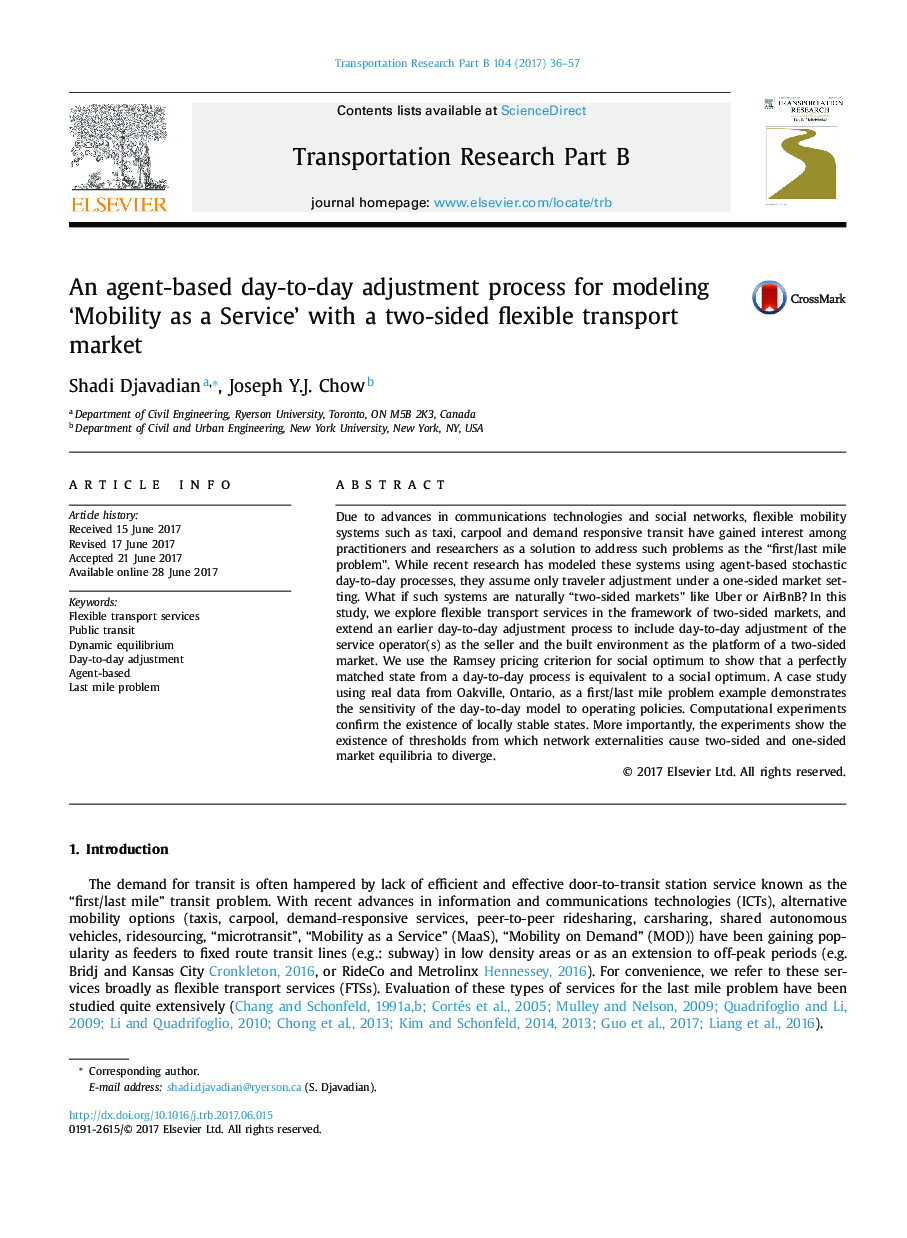| Article ID | Journal | Published Year | Pages | File Type |
|---|---|---|---|---|
| 5126951 | Transportation Research Part B: Methodological | 2017 | 22 Pages |
â¢Flexible transportation system is revealed to be equivalent to a two-sided market.â¢An agent based stochastic day-to-day adjustment for two-sided market is proposed.â¢The Ramsey pricing criterion is used to identify social optimality.â¢Proposed model evaluates complex policies and scenarios.
Due to advances in communications technologies and social networks, flexible mobility systems such as taxi, carpool and demand responsive transit have gained interest among practitioners and researchers as a solution to address such problems as the ``first/last mile problem". While recent research has modeled these systems using agent-based stochastic day-to-day processes, they assume only traveler adjustment under a one-sided market setting. What if such systems are naturally ``two-sided markets" like Uber or AirBnB? In this study, we explore flexible transport services in the framework of two-sided markets, and extend an earlier day-to-day adjustment process to include day-to-day adjustment of the service operator(s) as the seller and the built environment as the platform of a two-sided market. We use the Ramsey pricing criterion for social optimum to show that a perfectly matched state from a day-to-day process is equivalent to a social optimum. A case study using real data from Oakville, Ontario, as a first/last mile problem example demonstrates the sensitivity of the day-to-day model to operating policies. Computational experiments confirm the existence of locally stable states. More importantly, the experiments show the existence of thresholds from which network externalities cause two-sided and one-sided market equilibria to diverge.
Graphical abstractDownload high-res image (139KB)Download full-size image
